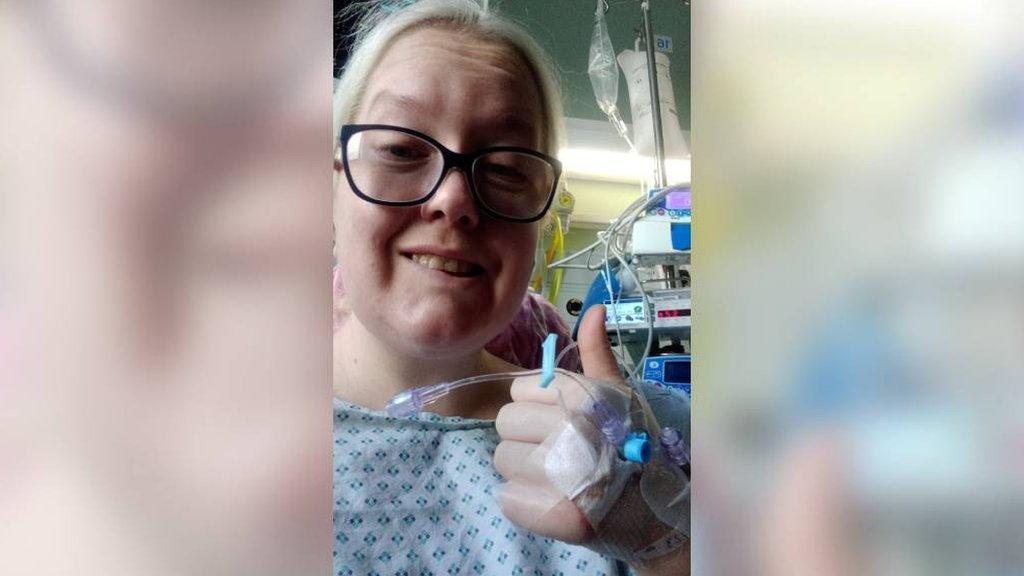British Transplant Games: From kidney surgery to athlete
- Published
"I never thought I'd have the chance to pull on the Wales shirt and represent my country"
Run down and constantly groggy, Sinead Harris barely had enough energy to leave the house.
That is when she was diagnosed with a chronic kidney disease that had left the organ with just 13% function.
However a transplant has given her a new lease of life and feeling like a "new" woman.
Now just six months after that major surgery, the 32-year-old is preparing to represent Wales at the British Transplant Games in Coventry this week.
While working as a delivery driver during the height of the coronavirus pandemic Harris, from Abercynon, Rhondda Cynon Taf, was diagnosed with the condition.
"I was tired all the time. I'd get up half-past nine in the morning but be back in bed by 11 o'clock," she said.
"I didn't have any energy to do anything, so bar the occasional walk I didn't really go outside of the house for quite some time."
By the autumn of 2022, she was told by doctors she required a transplant and, as luck would have it, her uncle was a perfect match. It meant she did not require dialysis and after six months, she underwent surgery in January.
"I have a new appreciation for everything I'm able to do now. Before I was so limited because I was tired, but it has been great since the surgery," she said.
"I feel like a new woman. I'm running, I swim twice a week, play tennis and badminton and just try to keep my fitness up.
"I've lost a little over 8kg in three-and-a-half months and it's done me the world of good. Before I was getting really frustrated but now I have so much energy and I'm willing to try new things."

Sinead Harris underwent transplant surgery in January
Harris will join 31 team-mates representing Wales at the British Transplant Games in Coventry, where more than 1,000 athletes compete in the multi-discipline event from 27-30 July.
"It's amazing. I never thought I'd have the chance to pull on the Wales jersey and represent my country," she said.
Joanne Popham is chief executive of the charity Popham Kidney Support, external, one of the organisations that help fund the Wales team.
The charity was established in the memory of her father Paul who received his first kidney transplant aged 39. He first competed in the Games in 1985 and did so for each of the next 15 years, other than for a second transplant in 1992.
"My father would not let the illness define him. He competed in all the swimming and athletics events, he just loved the camaraderie in sport," said Popham.
"A lot of patients watch the Commonwealth Games or Olympics and think the Games are all about being the best, but this is never about that.
"These Games give people the gift of life. The camaraderie encourages people to recognise that they're not on their own and they can live their life.
"The key message is it's all about taking part. My father tended to be last in most events but he still loved it.
"The Games are a celebration of life, to celebrate that your life isn't over, you can still compete."